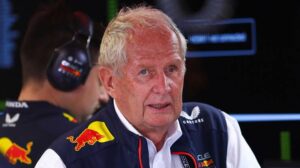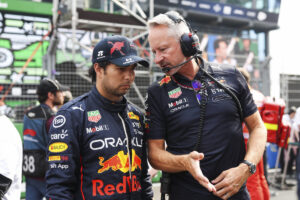Breaking News: Grey areas’ – Lewis Hamilton demands F1 rule changes after….. Read more

Lewis Hamilton Calls for F1 Rule Changes After Controversial Incident with Max Verstappen
Lewis Hamilton Calls for F1 Rule Changes, Points to “Grey Areas” After Verstappen Incident
In the world of Formula 1, seven-time World Champion Lewis Hamilton is now calling for a significant overhaul of F1 regulations, targeting what he describes as “grey areas” that he believes have affected fairness and consistency in the sport. This latest appeal comes on the heels of a controversial claim from rival Max Verstappen, who voiced frustration over the interpretation and enforcement of rules during the recent season. The debate has reignited the longstanding discourse on how F1’s rules impact the racing experience and competition between drivers.
Hamilton, a veteran on the track with more than a decade in the sport, is no stranger to regulations but expressed that recent rule interpretations have created inconsistencies that impact race outcomes. “These grey areas really need to be cleaned up,” Hamilton said. “There are situations in races where the rules can be interpreted in multiple ways, and that only creates confusion. For me, the rules should be crystal clear to avoid ambiguity.”
The current concerns began to mount after the recent clash between Verstappen and Hamilton during a race weekend. Verstappen, known for his aggressive style, felt that certain rule interpretations weren’t consistently enforced, affecting his race strategy and overall performance. The Dutch driver’s claim has since resonated with other drivers and teams who echo his concerns over clarity and predictability in rule enforcement.
Hamilton noted that as racing evolves, so too must the rulebook if the sport wants to keep up with the demands of modern F1. He cited recent incidents where penalties were either inconsistently applied or lacked proper guidelines, leading to speculation about biased enforcement. According to Hamilton, such inconsistencies undermine drivers’ trust in the regulatory body.
“The rules should be in place to guide us, not to catch us out,” Hamilton continued. “There are situations where penalties have been given without much explanation, and other times they’re more lenient. For the fans watching and for us racing, that lack of clarity takes away from the experience.”
Verstappen has also been vocal about the need for transparency, particularly when it comes to the role of stewards and the penalty system. The Red Bull driver argues that stricter guidelines need to be in place regarding on-track behaviors, especially given the intense competition and risks involved in racing at such high speeds. “When we’re competing, every second counts, and it’s not just about our skills – we rely on the rules being enforced fairly,” Verstappen explained, supporting Hamilton’s perspective.
This renewed call for regulation reform has ignited discussions among F1 fans and analysts, many of whom agree that the time may be ripe for a re-evaluation of the rulebook. As the sport grows and attracts a larger, more global audience, the demand for a consistent and transparent regulatory framework is increasing.
Both Hamilton and Verstappen’s comments highlight a shared frustration that F1 has yet to adequately address: the balance between letting drivers race freely and ensuring a fair, predictable system of regulation. For many fans, these remarks from two of the sport’s top competitors raise an important question about the future of F1 rules and their impact on the sport’s reputation.
The FIA has not yet responded to these latest criticisms, but with Hamilton and Verstappen leading the charge, a closer look at the rules may soon be inevitable. Whether or not F1 decides to enact changes, it is clear that the voices of the drivers – especially champions like Hamilton and Verstappen – are pushing the organization to rethink the way it manages the complexities of modern Formula 1.








